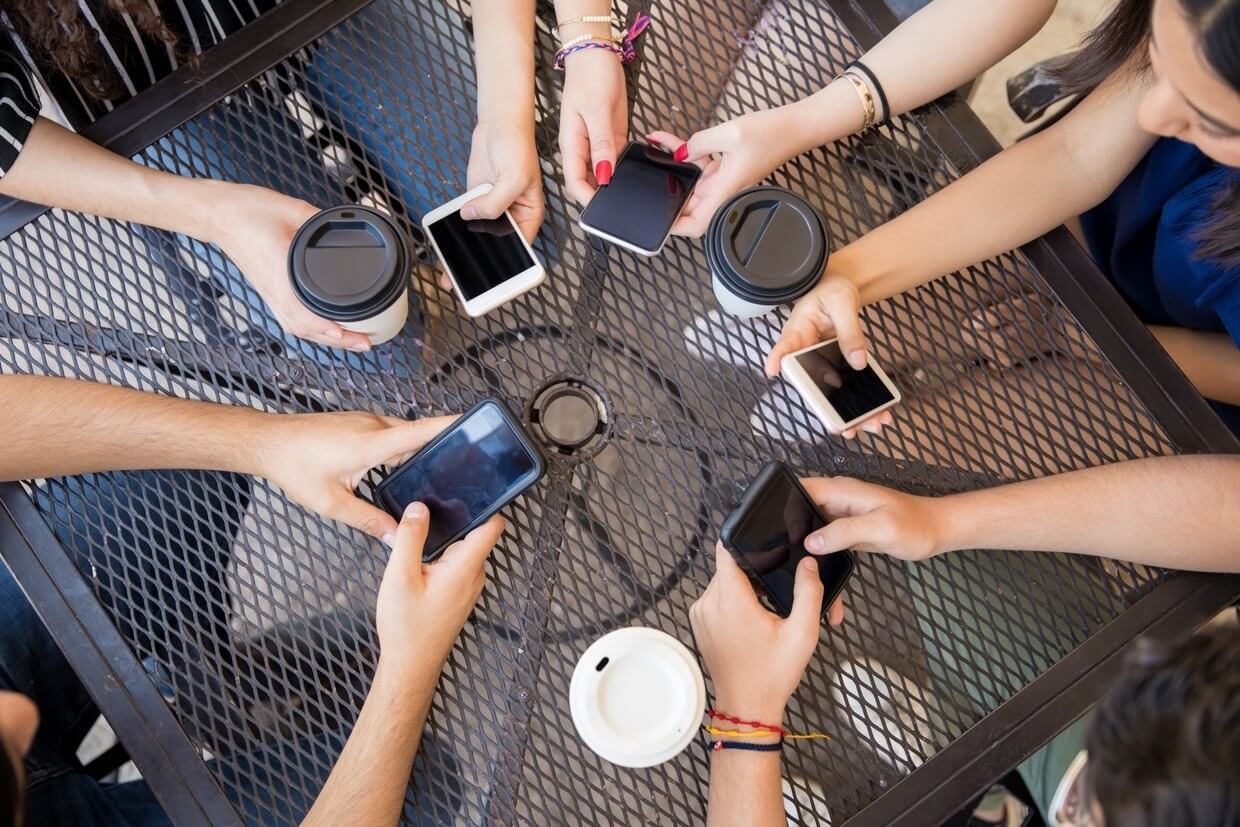“Keep your elbows off the table,” “Don’t chew with your mouth open,” “Say ‘please,’ ‘thank you,’ ‘yes sir’ and ‘yes ma’am,’” “Always write a handwritten thank you note.” If you grew up rolling your eyes to your momma’s etiquette reminders, yet they’re cemented in your brain and you’re instilling them in your own children, raise your hand. (Don’t worry, I raised mine too.)
These niceties are just a few examples of how etiquette rules are a part of the unspoken Southern culture. I was taught to say “Yes ma’am” to anyone who appeared even slightly older than me. I learned to pull aside for a funeral procession and to wave a “thank you” on the rare occurrence an Atlanta driver allowed me to switch lanes in bumper-to-bumper traffic. I discovered that bringing a pie to a friend in need is exactly the remedy and kindness required to cheer her up. We just do things differently — or as some might say, properly — here in the South. But how do we maintain our formalities in a world that’s becoming more and more casual?

Certified etiquette consultant Erika Preval has spent her life dedicated to passing on Southern etiquette traditions to young (and young-at-heart) pupils. As the proprietor of Atlanta-based Charm Etiquette, Erika offers classes in hostess duties, social skills, social media decorum, table manners, telephone etiquette and more. She also hosts a series of adults-only classes with similar, albeit grown-up, topics. Despite our sometimes courtesy-deprived society, etiquette is not old-fashioned. In fact, Erika explains that, like everything else, manners mature too.
“Etiquette evolves constantly to match societal shifts and trends. It’s important, to me, to present events with a modern focus so that guests are prepared to navigate today’s expectations successfully,” Erika shares. However, she also emphasizes that civilities aren’t going anywhere, and it’s important not to stray too far from your roots. “Having the ability to know what is expected in myriad scenarios is always going to enable you to have more confidence and create stronger relationships and a more considerate world.” In a pecan shell, Momma was right.
Managing Your Online Reputation
Of course one of today’s biggest hurdles is technology. “Technology has shifted things quite a bit and caused us to sometimes be more connected to our virtual friends and followers than people we’re in the same room with,” Erika says. “There are now rules of etiquette for cell phones at weddings, people are dating in a different way (swiping left or right), and first impressions are being made without ever having stepped into the lobby of your interviewer’s building due to your social footprint.” A good rule of thumb? “Google yourself often,” Erika suggests of the importance of managing your online reputation when social media is so prevalent. It’s easy for people to look you up and make assumptions based on what they see and read. So pay attention to what you share and post on the internet — Google will always find it!
Handwritten or Typed? That is the Question.
Another hot etiquette topic is the elusive thank you note. When asked about the modern day gesture (Is pen and paper the preferred method, or does an email suffice?), Erika doesn’t skip a beat. She explains the system in detail. “Thank you notes, as far as content, haven’t changed much. Handwritten thank you notes will always set you apart and, depending on the gift or nature of the kind act, are the safest option if you want to be certain the recipient isn’t offended. An email can be appropriate, for example, immediately after an interview, but it should still be followed by a handwritten letter,” she says, adding that email is also an appropriate avenue for a casual favor or to acknowledge a small task. She cautions about other modes and circumstances: “More than anything, please don’t send a text message or Facebook shoutout in response to a gift received.”

Model Desired Behavior
Perhaps the most burning question when it comes to traditional conventions is how to pass down good behavior and great manners to the next generation of young men and women. Erika explains it starts with presence. “It’s common to see families at restaurants who, in order to entertain small children, will hand them an iPad once they’ve been seated. There’s hardly any interaction at the table, and that’s where many lessons for my youth events are introduced — making eye contact, posture, putting phones away at the table, etc.” In other words, let children see good manners by modeling expectations. While the extra effort might seem hard in the moment, the reward later will be worth the potential frustration.
Erika says that when all is said and done, it’s important to remember that etiquette is just one characteristic of what makes Southerners exceptional. We’re known for our drawl, our friendliness, our hostessing and our warmth, and good manners shouldn’t be an annoyance but should instead be a common courtesy for each person we encounter. “Etiquette is not a bunch of rules created to separate people but to bring society together in a way that everyone is courteous,” she explains. “It’s much more than dining properly. If you can’t remember which fork to use [that’s okay], [but] please don’t forget The Golden Rule and notion that, ‘If you can’t say something nice, say nothing at all.’”
Go forth with your modern manners and make Momma proud, y’all!
**********
Want the best “me moment” of your day? Subscribe to StyleBlueprint. Click HERE.


















